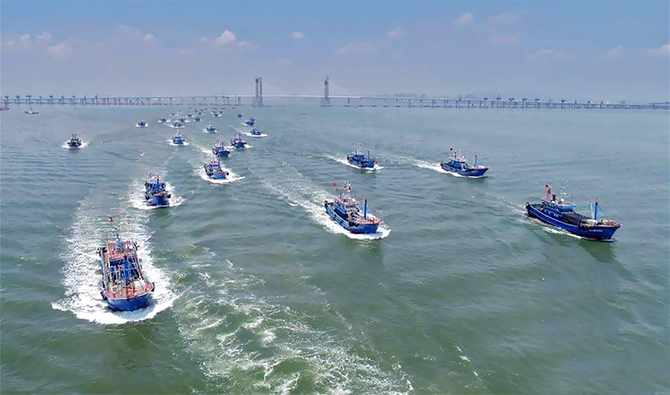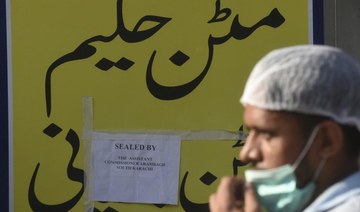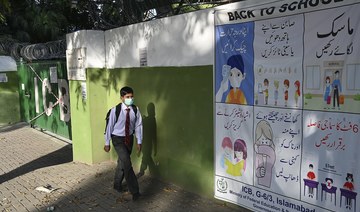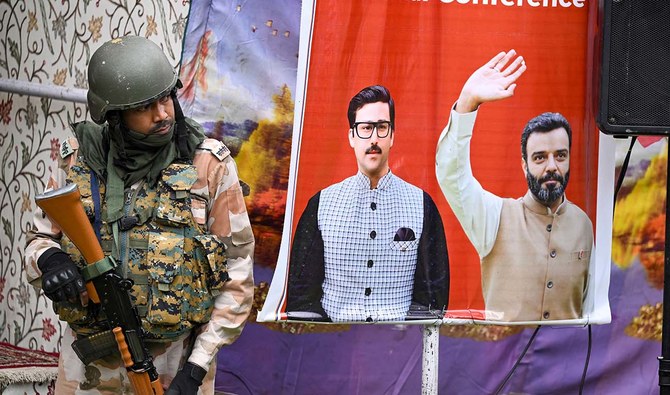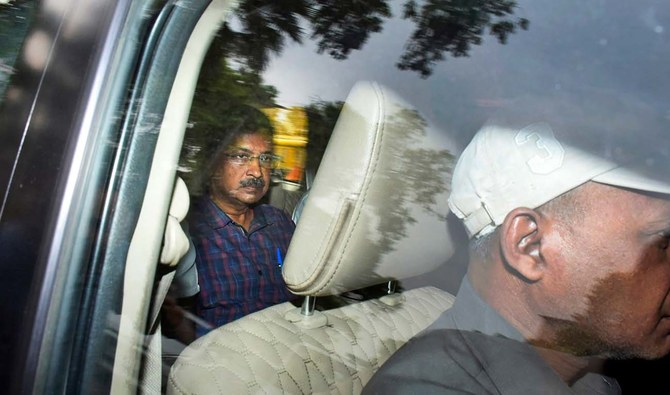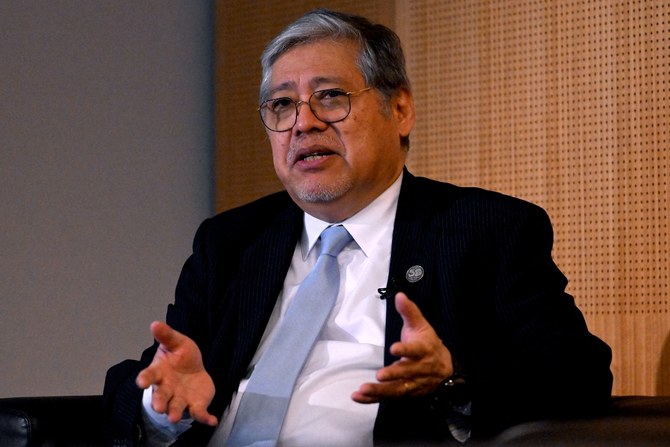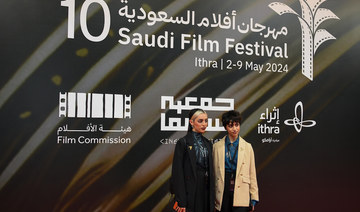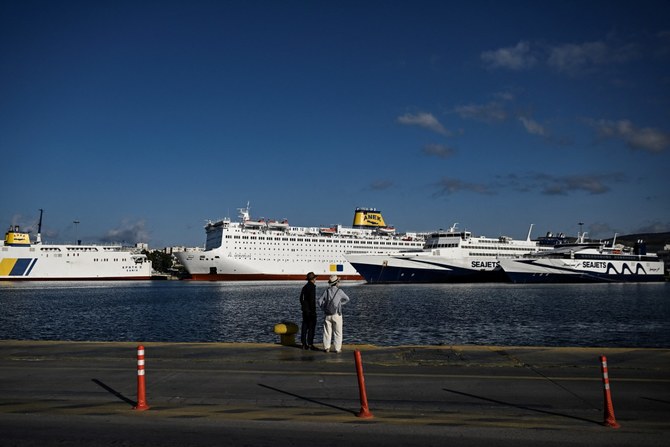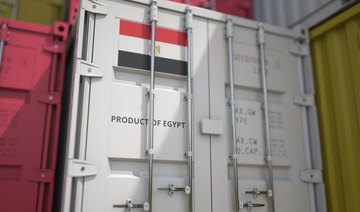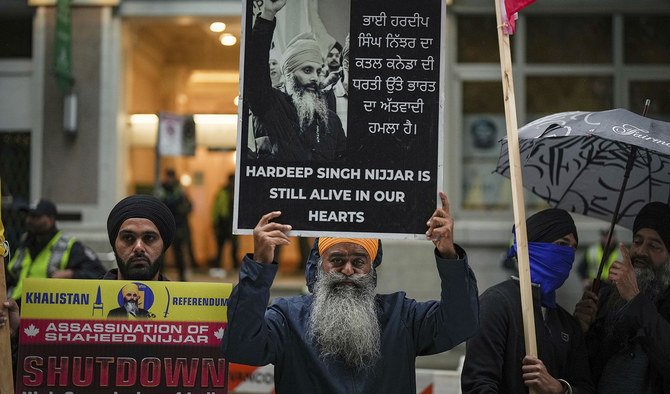KARACHI: Pakistan is planning to allow Chinese companies to carry out deep-sea fishing in the country’s territorial waters. But a pressure group representing Pakistani fishermen has said the move could threaten the livelihoods of at least 3 million people.
A dozen Chinese deep-sea trawlers docked at the port of Karachi last month, worrying local fishermen who said that commercial fishing vessels and bottom trawling would deplete fish stocks in the exclusive federal sea zones off the provinces of Sindh and Baluchistan.
Bottom trawling, which involves dragging nets across the seafloor to scoop up fish, stirs up the sediment lying on the seabed, displaces or harms some marine species, causes pollutants to mix into plankton and move into the food chain, and creates harmful algae blooms or oxygen-deficient dead zones.
The coastal line of Sindh and Baluchistan is 1,050 kilometers long, said chairman of the Pakistan Fisherfolk Forum Mohammad Ali Shah, and around three million fishermen relied on the sea to survive. A new fishing policy was expected but had yet to be revealed by the government, he added.
“The deep-sea trawler policy has not yet been approved, but before that they (China) have brought these trawlers,” Shah told Arab News, describing the arrival of the Chinese vessels as illegal.
In 2018, the government enacted a deep-sea fishing licensing policy that was opposed by bodies representing fishermen and provincial government. They called it a constitutional violation and an encroachment on the livelihoods of fishermen in the coastal provinces.
But fears about foreign fishing companies are not new.
For years, fishermen in the southwestern city of Gwadar in Baluchistan have protested against foreign trawlers.
Tensions first began to surface when the Fisheries Department disclosed its plan to issue licenses to foreign fishing vessels to operate in an exclusive economic zone in 2016.
But last week the federal minister for maritime affairs, Ali Haider Zaidi, said the country’s new policy would not allow Chinese trawlers to engage in unregulated deep-sea fishing. Bottom trawling would be banned under the new system, he added.
“Importing boats is not illegal,” he told Arab News. “How you use them has to be regulated.”
Pakistan divides its sea into three zones. The federal government controls zone 3 (from 20 to 200 nautical miles). Up to 12 nautical miles (zone-1) is the domain of Sindh and Baluchistan and, between 12 to 20 nautical miles, the sea is declared a buffer zone.
Local fishermen are not allowed to fish in Zone 3, and foreign fishing vessels are not permitted to fish in the other two zones under the existing policy.
The Fishermen’s Cooperative Society (FCS), which issued the permit to the Chinese trawlers, said the vessels would not use the destructive bottom trawling method and would help to “upgrade” the Pakistani fishing industry and exports.
Official figures put the annual value of Pakistan’s fish exports at around $450 million.
“Bringing Chinese trawlers for deep-sea fishing is in line with the government’s deep-sea fishing policy and aimed at upgrading and modernizing fishing, besides providing job opportunities to local fishermen,” Abdul Berr, FCS chairman, told Arab News. “Around 3,500 fishermen will get employment opportunities with the arrival of the world’s latest fishing boats and modern small boats. First, 70 percent of the staff at trawlers and processing facilities will be local. There will be no fishing in provincial, territorial waters. The trawlers will bring all their catch to Karachi, where it will be processed in factories and then exported.”
Small local fishermen would receive modern fiber boats on easy instalments, he added, a step toward replacing their obsolete boats.
But Sindh’s minister for livestock and fisheries, Abdul Bari Pitafi, said the mega fishing ships would wipe out sea life even if they were only operating in the federal government’s Zone 3.
“We will also oppose its (trawlers’) operations in Zone 3 because they will just wipe out sea life including the fish’s seed,” Pitafi told Arab News.
A 2016 survey from the Food and Agriculture Organisation revealed that more than 72 percent of the fish stock in Pakistan’s coastal areas had already declined.
“One trawler does a catch that is equal to a catch by 100 of our fishing boats,” fisherman Younus Khaskheli said. “And their fishing net is the most dangerous one because it hunts thousands of tons of fish.”
Tens of thousands of fishing boats were registered in Pakistan, he added, with fishermen from Sindh, Balochistan, Punjab, Khyber Pakhtunkhwa and even Bangladesh fishing in these waters.
“Our sea stock will end. The country will lose the income of billions and our fishermen will become jobless. There won’t be any food left in the sea.”



